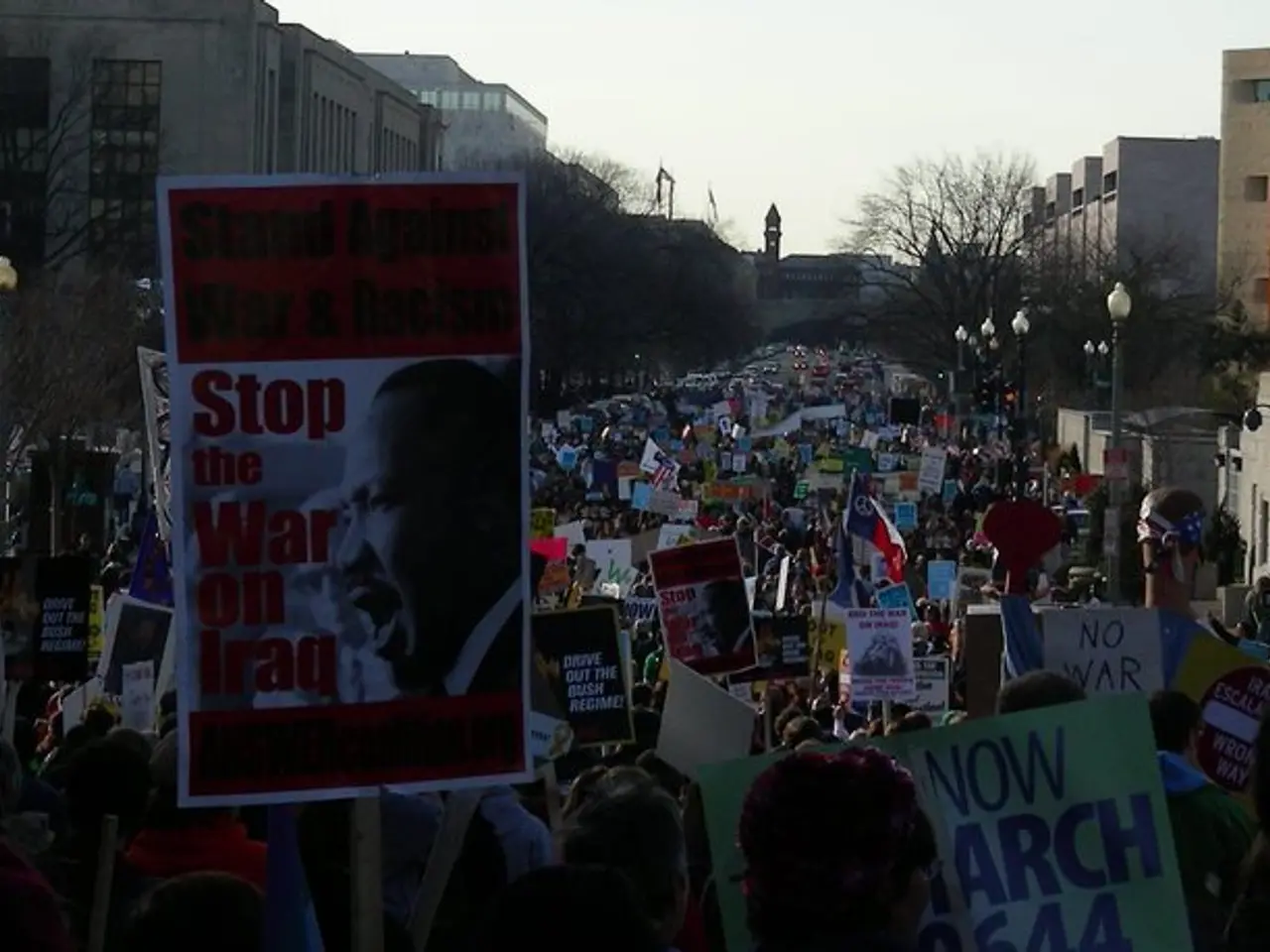International Tension: German-Russian Journalist Standoff
Russia and Germany engage in disputes over media personnel
Moscow/Berlin - Miscommunication between Moscow and Berlin is on full display in the scandal involving the expulsion of German journalists in Russia, as highlighted by the multiple summonses of the German ambassador, Alexander Graf Lambsdorff, to the Russian Foreign Ministry. The meetings have not yielded any promising results for German journalists currently facing a potential exile in Russia.
The German embassy issued a statement following the discussions, acknowledging that Maria Sacharowa, the Foreign Ministry spokeswoman, took the opportunity to outline Russia's stance on residence-related procedures regarding Russian journalists in Germany. The ambassador duly noted these views.
Concurrently, he raised concerns about the difficulties that German journalists encounter in Russia and presented a list of instances of questionable behavior by Russian authorities towards German and other foreign correspondents, seemingly contradicting press freedom principles [1][3][4][5].
The friction stems from Germany’s handling of correspondents for Russian state media, such as a representative affiliated with a Kremlin-linked media holding on the EU sanctions list. His residence permit has expired, and German authorities have refused to renew it, leading to speculation that he will be leaving Germany in the latter half of August [2].
The spokeswoman for the local immigration office confirmed the confiscation of the man's passport and his daughter's. The individual himself reported a house search in Russian media [3].
Russia's Retaliation: A Warning to German Journalists
On the eve of the discussions, Foreign Ministry spokeswoman Sacharowa asserted that Germany was intentionally driving Russian journalists out of the country, infringing upon its duties to uphold press freedom and pluralism of opinions. She cautioned of retaliatory "countermeasures" [2][3].
Earlier at the St. Petersburg International Economic Forum, Sacharowa threatened sanctions against German journalists, implying that specific journalists in Moscow may be targeted and compelled to leave the country [2][3].
The Odd Dispute: Missing Interpreter
The strategy for implementing these retaliatory measures was supposed to be shared with the German ambassador during his visit. However, the discussion was delayed as the ambassador had to search for an interpreter, a circumstance that Maria Sacharowa humorously ridiculed, implying that the ambassador could not communicate in Russian effectively [2].
As the German ambassador has been in his post in Moscow since 2023, he speaks Russian, albeit not fluently enough for in-depth diplomatic negotiations without an interpreter. This communication barrier can potentially lead to significant misunderstandings, as demonstrated during Ukrainian President Volodymyr Zelensky's disastrous visit to the White House [5].
Despite the language barrier, the ambassador explained that he had been informed in advance that the discussion would be conducted in English [2].
Two Hours of Talks - Little Insight
The discussion commenced when the interpreter from the embassy arrived. After more than two hours, the talks concluded, and the ambassador departed from the Foreign Ministry [2]. Russian media reported that Lambsdorff characterized the conversation as "long and interesting," but he did not disclose additional details [6].
The German Foreign Office in Berlin rebuked allegations from Russia regarding the handling of correspondents from Russian state media by German authorities, asserting that the rule of law and press freedom principles are upheld in Germany, far from the increasingly harsh repression experienced by journalists in Russia [7].
Potential Expulsion of German Journalists
The Russian Ministry of Foreign Affairs persists in its position. Lambsdorff was informed of Russia’s protests regarding Germany’s treatment of its own journalists. The statement emphasized that the ongoing unfriendly acts of German authorities "will inevitably draw a counter response from the Russian side" [7].
As a result, the potential expulsion of one or more German journalists remains a possibility. History has shown that such action has been taken in the past [7].
Precedent: ARD
In late 2024, two employees of the ARD were obliged to leave Russia. Their departure was a response to the refusal to renew the residence permits for two men from Russian state television based in Berlin. Russia also declared the shutdown of the channel, although the German Foreign Ministry refuted these allegations and described the expulsion of ARD employees as "unacceptable" [8].
The Russians were not expelled, but their residence permits had expired, and they could have contested the decision, as the ministry argued at the time [8].
In this escalating dispute, the focus remains on the safety and freedom of journalists from both countries, with the potential for further deterioration in diplomatic relations between Germany and Russia.
In the context of the ongoing standoff between Moscow and Berlin, the German ambassador, Alexander Graf Lambsdorff, expressed concerns about the difficulties encountered by German journalists in Russia, citing instances of questionable behavior by Russian authorities towards correspondents as apparent violations of press freedom principles [1][3][4][5]. However, despite the discussions, the future of German journalists in Russia remains uncertain, with the possibility of their expulsion hanging over them [7]. This situation echoes a precedent set in late 2024, when two employees of ARD were forced to leave Russia due to the refusal to renew their residence permits, a move that was widely deemed as "unacceptable" by the German Foreign Ministry [8].








